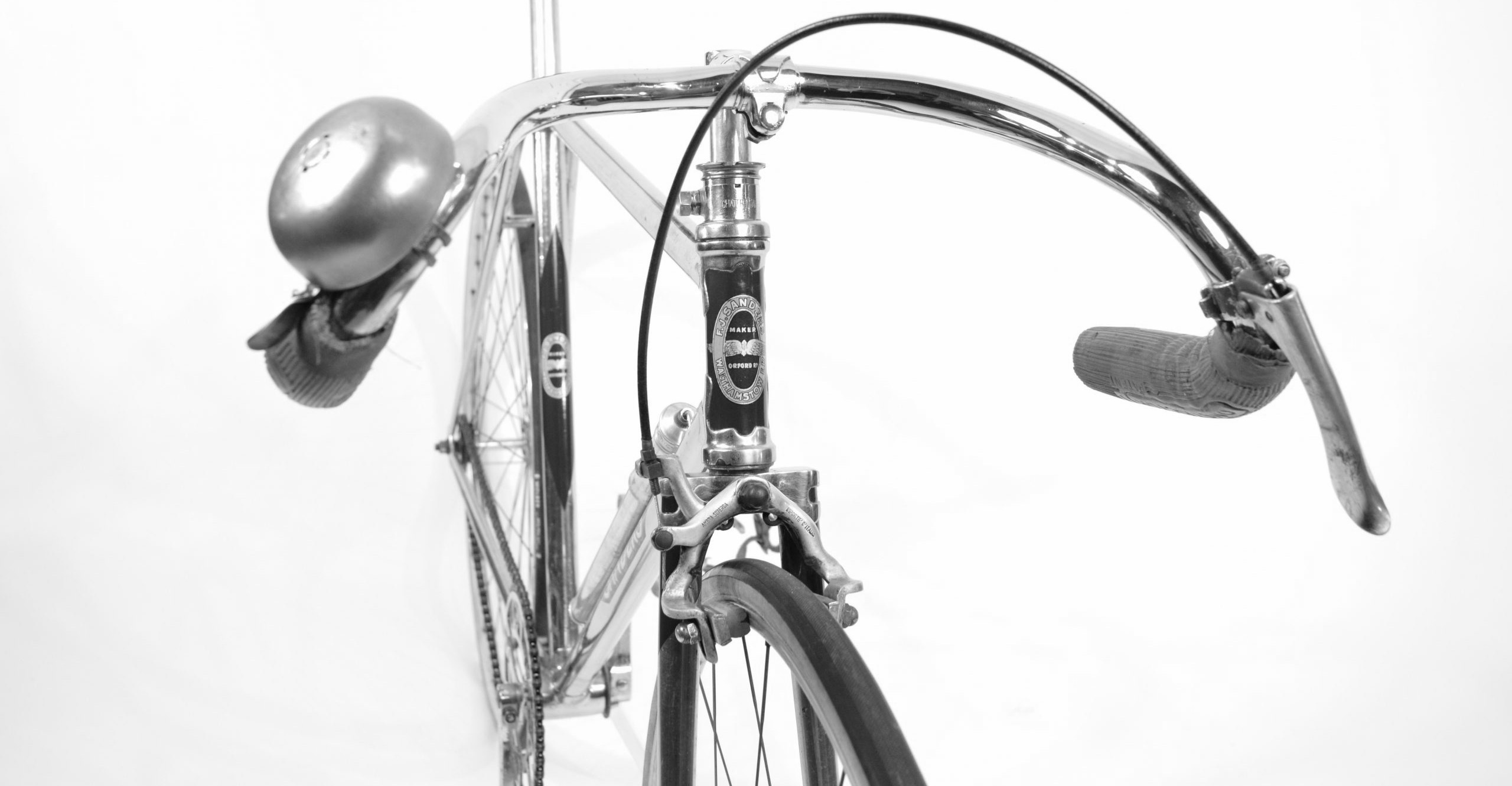Cycling at the British Empire and Commonwealth Games in the Classic Era 1934-70
Posted: Tuesday 18th August 2020
In July-August 2014, the 20th Commonwealth Games are scheduled to be held in Glasgow, Scotland. The track cycling events will be staged on the new indoor Sir Chris Hoy Velodrome in the city and the road events and mountain bike title races on courses centred on the city.
The original Games were held in 1930 in Hamilton, Canada, when they were called the ‘British Empire Games’. Subsequently, with the exception of the World War II period, they have been held at four yearly intervals in a number of different Commonwealth countries. In 1954 they were retitled the ‘British Empire and Commonwealth Games’. In 1970 they officially became the ‘British Commonwealth Games’ and in 1978 the ‘Commonwealth Games’.
Cycling events were first included in these Games in 1934 and have featured ever since, although the events schedule has been modified and extended over the years.
This article focuses on the cycling competitions included in the eight editions of the Games held during the ‘classic era’ spanning 36 years from 1934 through to 1970. After first identifying the location of each of the Games, the cycling events held at these in different periods from 1934 to 1970 are explored in greater detail.
Table 1: Empire & Commonwealth Games: 1934-1970
| Year | City | Country |
| 1934 | London | England |
| 1938 | Sydney | Australia |
| 1950 | Auckland | New Zealand |
| 1954 | Vancouver | Canada |
| 1958 | Cardiff | Wales |
| 1962 | Perth | Australia |
| 1966 | Kingston | Jamaica |
| 1970 | Edinburgh | Scotland |
THE GAMES OF THE PRE-WORLD WAR II PERIOD
The second edition of the Games in 1934 was originally scheduled to be held in Johannesburg, South Africa. However, the venue was hastily changed to London when the organisers realised that participants of colour would be subject to racial discrimination in South Africa.
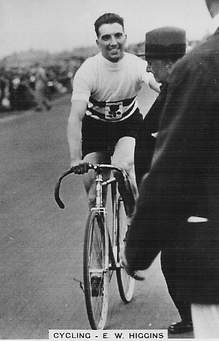
Cycling events at the 1934 London Games
The 1934 Games included three cycling events. All were on the track and were reserved exclusively for amateur male competitors who were citizens of countries within the Commonwealth. These rules were to remain in place throughout the classic period. The events, all held at the Fallowfield stadium in Manchester, were:
- 1,000 yards Sprint
- 1,000 metres individual Time Trial
- 10 mile Scratch race
The competitors represented Australia, Canada, England, New Zealand, Northern Ireland, Rhodesia and South Africa.
Table 2: 1934 London Empire Games Cycling Results
| Event | Position | Name | Country | Time |
| 1,000 yards Sprint | 1 | E.W. Higgins | England | |
| 2 | H. Pethybridge | Australia | ||
| 3 | E. Clayton | South Africa | ||
| 1,000 metres Indiv. TT | 1 | E.L. Gray | Australia | 1:16.4 |
| 2 | R. McLeod | Canada | 1:18.0 | |
| 3 | E. Clayton | South Africa | 1:18.7 | |
| 10 Mile Scratch | 1 | R. McLeod | Canada | |
| 2 | E. Clayton | South Africa | ||
| 3 | W. Harvell | England |
Total Medal Count: 9
Australia: 1 gold, 1 silver.
Canada: 1 gold, 1 silver.
England: 1 gold, 1 bronze.
South Africa: 1 silver, 2 bronze.
Ernie Higgins and Bill Harvell were two of the top English trackmen of the period. However, a notable absentee from these Games was Dennis Horn. He had been selected to represent Britain in the match sprint event at the 1934 UCI World Championships in Leipzig, Germany, which coincided with the Empire Games. Peter Underwood notes: But at the World Championships Dennis (Horn) was eliminated in the 1/8th finals The World Champion final was between Van Vliet and the Italian Benedetto Pola, who won the title The following Wednesday Dennis returned to his second home at Herne Hill … winning every race and heat in which he rode. He beat the Empire Games Champion (Higgins) easily…’ Peter Underwood (2013) Dennis Horn-Racing for an English Rose (p.38)
The Australian, E.L. ‘Dunc’ Gray, won the 1,000 metres individual time trial at these Games. He was the reigning Olympic champion in this event, having won the title at the 1932 Los Angeles Olympics in a world record time of 1:13.0. He thus became Australia’s first Olympic cycling gold medallist after placing third at the 1928 Amsterdam Olympics.
Eric Clayton of South Africa was placed in all three of the 1934 cycling events while R. McLeod of Canada won both gold and silver medals.
Cycling events at the 1938 Sydney, Australia, Games
In 1938 a mass-start road race was included in the Games along with three track events. This was a highly innovative step as mass-start road racing was then non-existent in Britain and remained a rare event in the colonies. However, its introduction brought the Empire Games into line with the Olympics and UCI world championships.
The 1938 Games included cyclists representing the following countries: Australia, Canada, England, India, New Zealand, South Africa and Wales.
Table 3: 1938 Sydney Empire Games Cycling Results
| Event | Position | Name | Country | Time |
| 1,000m Match Sprint | 1 | E.L. Gray | Australia | |
| 2 | R. Porter | Australia | ||
| 3 | G.R. Giles | New Zealand | ||
| 1,000 metres Indiv. TT | 1 | R. Porter | Australia | 1:15.2 |
| 2 | T. Johnson | Australia | 1:15.7 | |
| 3 | E.V. Mills | England | 1:15.9 | |
| 10 Mile Scratch | 1 | W. Maxfield | England | 24:44.0 |
| 2 | R. Hicks | England | s.t. | |
| 3 | S. Rose | South Africa | s.t. | |
| Road Race | 1 | H. Binneman | South Africa | 2:53:29.6 |
| 2 | J. Brown | New Zealand | s.t. | |
| 3 | R. Jones | England | s.t. |
Total Medal Count: 12
Australia: 2 gold, 2 silver.
England: 1 gold, 1 silver, 2 bronze.
New Zealand : 1 silver, 1 bronze.
South Africa: 1 gold, 1 bronze.
Australia’s Dunc Gray, who was 32 by this time, won the sprint gold. However, a new generation of Commonwealth cyclists took the remaining honours. Bill Maxfield, who won the 10 mile title, was then one of Britain’s top trackmen. A ‘maker’s amateur’ associated with Claud Butler (as were both Dennis Horn and Toni Merkens), Maxfield was to be beaten by a youthful Reg Harris in a major 1939 sprint event in Britain after having first loftily told Harris, ‘It’s too bad they’ve put you in my heat’.
The mass-start road race was held over 100km. and consisted of 15 laps of a circuit in a Sydney park. The finish was fought out in a sprint between four riders with the South African, Hendrick Binneman, winning the gold medal.
During World War II all international sporting events like the Games ceased. As a result, the cycling careers of many pre-war cyclists were either cut short or terminated.
THE POST-WAR GAMES OF THE 1950s
The Aukland Games
Rhodesian cyclists participated in these Games but there were no South African entrants. Table 4 gives details of the results, including those for a newly-introduced event: the 4,000 metres Individual Pursuit.
This proved to be the ‘Australian Games’ in cycling with the team winning a total of 10 out of the 15 medals contested. Russell Mockridge and Sid Patterson dominated the Sprint and 1,000 metres TT events, with Mockridge also finishing second in the 4,000 metres Individual Pursuit.
Patterson had won the UCI World Amateur Sprint title in 1949 and took the World Amateur Pursuit title in 1950. He then went on to win the World Professional Pursuit title in both 1952 and 1953. At the 1952 Helsinki Olympics, Mockridge won the 1,000 metres Individual TT and the Tandem match sprint with Lionel Cox. As a professional, he later rode in six-day events and completed the 1955 Tour de France. He was killed in 1958 in a collision with a bus during a road race in Australia.
Tommy Godwin (Image below), representing England, closely challenged the two Australian stars in the 1,000 metres individual TT at the Auckland Games. Godwin had won bronze in the same event at the 1948 London Olympics. Cyril Cartwright of England comfortably beat Mockridge in the 4,000 metres Individual Pursuit at the Games.
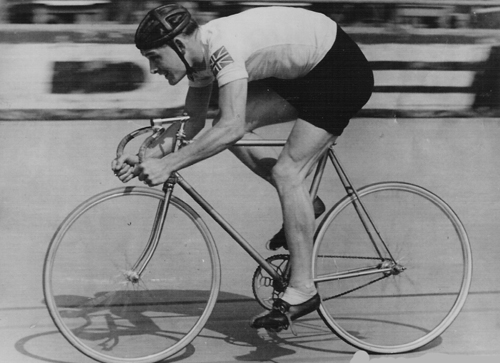
Table 4: 1950 Auckland Empire Games Cycling Results
| Event | Position | Name | Country | Time |
| 1,000m Match Sprint | 1 | E.R. Mockridge | Australia | |
| 2 | S.P. Patterson | Australia | ||
| 3 | R. Avery | Australia | ||
| 1,000 metres Indiv. TT | 1 | E.R. Mockridge | Australia | 1:13.4 |
| 2 | S.P. Patterson | Australia | 1:13.5 | |
| 3 | T.C. Godwin | England | 1:13.6 | |
| 10 Mile Scratch | 1 | W.D. Heseltine | Australia | 23:23.4 |
| 2 | L.P. Lock | New Zealand | ||
| 3 | K.J. Caves | Australia | ||
| 4,000 m Indiv. Pursuit | 1 | C. Cartwright | England | 5:16.3 |
| 2 | E.R. Mockridge | Australia | 5:27.0 | |
| 3 | L.P. Lock | New Zealand | 5:26.7 | |
| Road Race | 1 | H. Binneman | Australia | 3:13:06.4 |
| 2 | J. Brown | New Zealand | ||
| 3 | R. Jones | Australia |
Total Medal Count: 15
Australia: 4 gold, 3 silver, 3 bronze.
England: 1 gold, 1 bronze.
New Zealand : 2 silver, 1 bronze.
The 1954 Vancouver Games
At these the new title of the ‘British Empire and Commonwealth Games’ was introduced. The cycling events included competitors from Pakistan, Rhodesia and South Africa. Table 5 gives the final results.
| Event | Position | Name | Country | Time |
| 1,000m Match Sprint | 1 | C.F. Peacock | England | |
| 2 | Not awarded* | |||
| 3 | T. Shardelow | South Africa | ||
| 1,000 metres Indiv. TT | 1 | R.F. Ploog | Australia | 1:12.5 (result tied) |
| 1 | J.A. Swift | South Africa | 1:12.5 (result tied) | |
| 3 | K.J. Harrison | England | 1:12.7 | |
| 10 Mile Scratch | 1 | L.W. Cocks | Australia | 21:59.5 |
| 2 | K.J.Harrison | England | ||
| 3 | D.J.C. Skene | Wales | ||
| 4,000 m Indiv. Pursuit | 1 | N.L. Sheil | England | 5:03.5 |
| 2 | P.F. Brotherton | England | 5:09.1 | |
| 3 | R. Fowler | South Africa | 5:06.9 | |
| Road Race | 1 | E.G. Thompson | England | 2:44:08.1 |
| 2 | J.K. Baird | New Zealand | ||
| 3 | B. Pusey | England |
Total Medal Count: 14
Australia: 2 gold.
England: 3 gold, 2 silver, 2 bronze.
New Zealand : 1 silver.
South Africa: 1 gold, 2 bronze.
Wales: 1 bronze.
*L.R. Cox (Aus) was disqualified in the final while R.F. Ploog (Aus) refused to start.
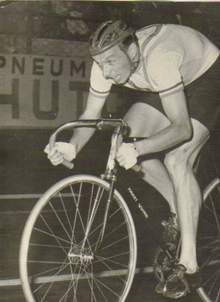
England’s cyclists were dominant at these Games, winning a total of seven medals. Cyril Peacock went on to win the 1954 UCI World Amateur Sprint title while Norman Sheil won the World Amateur Individual Pursuit title in both 1955 and 1958.
According to South African Tommy Shardelow (placed third in the Match Sprint in Vancouver), the Australian sprinters Cox and Ploog were dissatisfied with official decisions and abandoned the Sprint event at the Games. Nevertheless, Dick Ploog tied with the South African Jimmy Swift for the gold medal in the 1,000 metres Individual time trial.
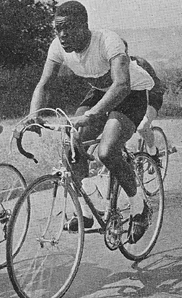
The 1958 Cardiff Games
Controversy surrounded South Africa sending an exclusively white team to compete in the Cardiff Games, with public protests being staged in the city at the time. Despite the protests the South African team was allowed to participate. However, South Africa left the Commonwealth in 1961. It was only in the 1990s, with apartheid having been scrapped, that South Africa rejoined the Commonwealth and recommenced participation in the Games.
With few exceptions, the medal winners in the cycling events at Cardiff came from a new generation of Commonwealth cyclists. Competitors included riders from Jersey, Kenya, Northern Ireland, Pakistan and Scotland.
A youthful Tom Simpson finished second to Norman Sheil in the 4,000 metres Individual pursuit. The road race was won by Ray Booty, the great British road time triallist of the 1950s, best known for breaking the four-hour barrier in the 100 mile road TT.
Table 6: 1958 Cardiff Empire & Commonwealth Games Cycling Results
| Event | Position | Name | Country | Time |
| 1,000m Match Sprint | 1 | R.J. Ploog | Australia | |
| 2 | K. Barton | England | ||
| 3 | L. Binch | England | ||
| 1,000 metres Indiv. TT | 1 | N. Tong | England | 1:12.1 |
| 2 | W.J. Scarfe | Australia | 1:12.4 | |
| 3 | W.D.H. Dalton | New Zealand | 1:12.6 | |
| 10 Mile Scratch | 1 | I.S. Browne | Australia | 21:40.2 |
| 2 | W.T. Johnston | New Zealand | ||
| 3 | D.J.C. Skene | Wales | ||
| 4,000 m Indiv. Pursuit | 1 | N.L. Sheil | England | 5:10.2 |
| 2 | T. Simpson | England | 5:10.5 | |
| 3 | W.D.H. Dalton | New Zealand | 5:14.7 | |
| Road Race | 1 | R. Booty | England | 5:16:33.7 |
| 2 | F. Brazier | Australia | 5:19:21.7 | |
| 3 | S.G. Slack | Isle of Man | 5: 19:21.7 |
Total Medal Count: 15
Australia: 2 gold, 2 silver.
England: 3 gold, 2 silver, 1 bronze.
Isle of Man: 1 bronze.
New Zealand: 1 silver, 2 bronze.
Wales: 1 bronze.
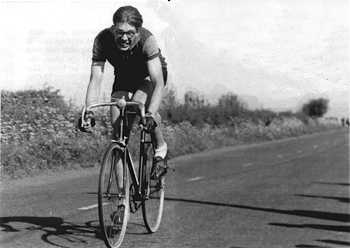
At the Maindy stadium in Cardiff the Welsh trackman, Don Skene, repeated his bronze medal win in the 10 mile Scratch event in the previous Games. In the road race, S.G. Slack took bronze to give the Isle of Man its first cycling medal
THE GAMES IN THE PERIOD 1962-1970
The Perth Games of 1962
The Games returned to Australia in 1962 and in the cycling events Australia, England and New Zealand divided the medals between them. Australia won a total of seven medals (including four golds), England five medals and New Zealand three. They did so against fields which included competitors from Malaya, Trinidad & Tobago and Rhodesia.
The Australians did not win any medals in the road race. Wes Mason (England) won gold in this event and was followed home by New Zealanders Walsh and Beyers. Notable absentees at the Perth Games were South African cyclists, who were no longer eligible to participate.
Table 7: 1962 Perth Empire & Commonwealth Games Cycling Results
| Event | Position | Name | Country | Time |
| 1,000m Match Sprint | 1 | T. Harrison | Australia | |
| 2 | K. Barton | England | ||
| 3 | I.S. Browne | Australia | ||
| 1,000 metres Indiv. TT | 1 | P.T. Bartels | Australia | 1:12.9 |
| 2 | I.R. Chapman | Australia | 1:13.2 | |
| 3 | R. Whitfield | England | 1:13.5 | |
| 10 Mile Scratch | 1 | D.J. Adams | Australia | 22:40.8 |
| 2 | W.T. Johnston | New Zealand | ||
| 3 | H. Clarey | England | ||
| 4,000 m Indiv. Pursuit | 1 | M. Langshaw | Australia | 5:08.8 |
| 2 | R.J. Hine | Australia | 5:13.2 | |
| 3 | H.K. Jackson | England | 5:14.2 | |
| Road Race | 1 | W. Mason | England | 5:20:26.2 |
| 2 | A. Walsh | New Zealand | 5:20:27.0 | |
| 3 | L. Beyers | New Zealand | 5:20:27.2 |
Total Medal Count: 15
Australia: 4 gold, 2 silver, 1 bronze.
England:1 gold, 1 silver, 3 bronze.
New Zealand: 2 silver, 1 bronze.
The Kingston Games of 1966
This was the first time that the Games had been held in the Caribbean and it revealed a star trackman in Roger Gibbon of Trinidad & Tobago. He won gold in both the Match Sprint and the 1,000 metres Individual TT.
Table 8: 1966 Kingston Empire and Commonwealth Games Cycling Results
| Event | Position | Name | Country | Time |
| 1,000m Match Sprint | 1 | R. Gibbon | Trinidad & Tobago | |
| 2 | J.F. Booker | England | ||
| 3 | D.W. Perkins | Australia | ||
| 1,000 metres Indiv. TT | 1 | R. Gibbon | Trinidad & Tobago | 1:09.6 |
| 2 | P.W. Bristow-Stagg | Australia | 1:10.9 | |
| 3 | R.J.Hine | Australia | 1:11.0 | |
| 10 Mile Scratch | 1 | I. Alsop | England | 21:46.0 |
| 2 | H.S. Clarke | Australia | ||
| 3 | T. Bull | England | ||
| 4,000 m Indiv. Pursuit | 1 | H. Porter | England | 4:56.6 |
| 2 | J.C. Bylsma | Australia | 4:59.0 | |
| 3 | R.J. Hine | Australia | 5:03.7 | |
| Road Race | 1 | P. Buckley | Isle of Man | 5:07:52.5 |
| 2 | D. Thomson | New Zealand | 5:12:11.2 | |
| 3 | L.J. Byers | New Zealand | 5:12:19.8 |
Total Medal Count: 15
Australia: 3 silver, 3 bronze.
England: 2 gold, 1 silver, 1 bronze.
Isle of Man: 1 gold.
New Zealand : 1 silver, 1 bronze.
Trinidad & Tobago: 2 gold.
A youthful Hugh Porter won the Individual Pursuit. He went on to enjoy a professional career which included winning the UCI Professional World Pursuit title in 1968, 1970, 1972 and 1973 in a series of epic battles with the Belgian, Ferdi Bracke. Peter Buckley, representing the Isle of Man, won the Games road race. He was tragically killed in a training accident in 1969.
The Edinburgh Games of 1970
This was the final Games of the classic period. It included a large contingent of cyclists from the Caribbean countries: Bahamas, Barbados, Guyana, Jamaica, Trinidad & Tobago. The Tandem Match Sprint event was introduced at these Games and was won by the Australian pair of Johnson and Jonker.
The Australian sprinters Nicholson and Johnson fought out the final, with Nicholson taking the title. Both went on to win UCI World titles. Gordie Johnson won the Pro Sprint world title in 1970 in Carlton colours. John Nicholson turned professional after defending his Commonwealth sprint title in 1974, winning the world Pro sprint title in 1975 and again in 1976. He was noted for having his shoes bolted to the pedals and using a Shimano drivetrain based on a 10mm. pitch chain. Neither of these innovations enjoyed subsequent popularity.
Table 9: 1970 Edinburgh Commonwealth Games Cycling Results
| Event | Position | Name | Country | Time |
| 1,000m Match Sprint | 1 | R. Gibbon | Trinidad & Tobago | |
| 2 | J.F. Booker | England | ||
| 3 | D.W. Perkins | Australia | ||
| 1,000 metres Indiv. TT | 1 | R. Gibbon | Trinidad & Tobago | 1:09.6 |
| 2 | P.W. Bristow-Stagg | Australia | 1:10.9 | |
| 3 | R.J.Hine | Australia | 1:11.0 | |
| 10 Mile Scratch | 1 | I. Alsop | England | 21:46.0 |
| 2 | H.S. Clarke | Australia | ||
| 3 | T. Bull | England | ||
| 4,000 m Indiv. Pursuit | 1 | H. Porter | England | 4:56.6 |
| 2 | J.C. Bylsma | Australia | 4:59.0 | |
| 3 | R.J. Hine | Australia | 5:03.7 | |
| Road Race | 1 | P. Buckley | Isle of Man | 5:07:52.5 |
| 2 | D. Thomson | New Zealand | 5:12:11.2 | |
| 3 | L.J. Byers | New Zealand | 5:12:19.8 |
Total Medal Count: 18
Australia: 2 gold, 3 silver, 1 bronze.
Canada: 1 gold, 1 silver, 1 bronze.
England: 1 gold.
New Zealand: 2 gold, 1 bronze.
Scotland: 1 silver.
Trinidad & Tobago: 1 silver, 2 bronze.
Wales: 1 bronze.
In these Games the performance of England’s cyclists was very disappointing. Ian Hallam won England’s sole medal: gold in the Individual Pursuit.
REVIEW: CYCLING AT THE BRITISH EMPIRE & COMMONWEALTH GAMES IN THE CLASSIC ERA
In the course of the eight Games spanning the 36-year classic period between 1934 and 1970, a total of 113 cycling medals were awarded to Commonwealth cyclists: 39 gold, 36 silver and 38 bronze. Australian cyclists were dominant overall, winning a total of 41 (36 per cent) of all medals and 17 (44 per cent) of all the gold medals. They were followed by England with New Zealand third in the medal stakes.
Table 10: Commonwealth Games Medals by Country: 1934-1970
| Country | Gold Medals | Silver Medals | Bronze Medals | Total |
| Australia | 17 | 16 | 8 | 41 |
| Canada | 2 | 2 | 1 | 5 |
| England | 13 | 7 | 11 | 31 |
| Isle of Man | 1 | 1 | 2 | |
| New Zealand | 2 | 8 | 7 | 17 |
| Scotland | 1 | 1 | ||
| South Africa | 2 | 1 | 5 | 8 |
| Trinidad & Tobago | 2 | 1 | 2 | 5 |
| Wales | 3 | 3 | ||
| Total | 39 | 36 | 38 | 113 |
A striking feature of the Games in the classic period is the significant number of Commonwealth riders who subsequently enjoyed successful international careers. They went on to win Olympic titles and UCI World Championships as well as to pursue professional cycling careers. This suggests that these Games played a major role in stimulating the international sporting success of cyclists from the Anglophone world.
Throughout this classic period the cycling competitions at the Games remained strictly amateur and were confined exclusively to male competitors from Commonwealth countries. The officials were invariably ‘honorary’ and the timing of events was done using handheld stop watches.
Altogether, the cycling of the classic Games era was a world away from the cycling scene scheduled for the 2014 Glasgow Commonwealth Games.
References
Books
Harris, R. (1976) Two Wheels to the Top. London: W.H. Allen.
Henderson, N.G. (1973) Cycling Classics, 1970-1972. London: Pelham.
Underwood, P. (2013) Dennis Horn: Racing for an English Rose. Norwich: Mousehold .
Websites
http://www.bikecult.com/bikecultbook/sport_trackWorld.html
http//www.thecgf.com/sports/intro.asp
Interview
South African cyclist Tommy Shardelow, interviewed on 1/02/2014.
His honours include:
- 1952 Olympics – silver medal in Tandem Sprint (with Ray Robinson)
- 1952 Olympics – silver medal in 4,000m Team Pursuit
- 1954 Empire & Commonwealth Games – bronze in Match Sprint
In the interview, Tommy spoke of his experiences at the 1952 Helsinki Olympics, the 1954 Vancouver Games and of his competing in Europe during the 1950s.This included racing on the Vigorelli velodrome in Milan, Italy, in its heyday. He also told of meeting Gino Bartali and other stars of the era. Today Tommy, who is in his 80s, is retired and lives in Cape Town, South Africa.
Posted: Tuesday 18th August 2020
This article appears in the following categories.
Upcoming Events
Whether you are looking for a gentle social meet up, or a 100-mile ride browse the community’s upcoming events and plan your next weekend outing.
